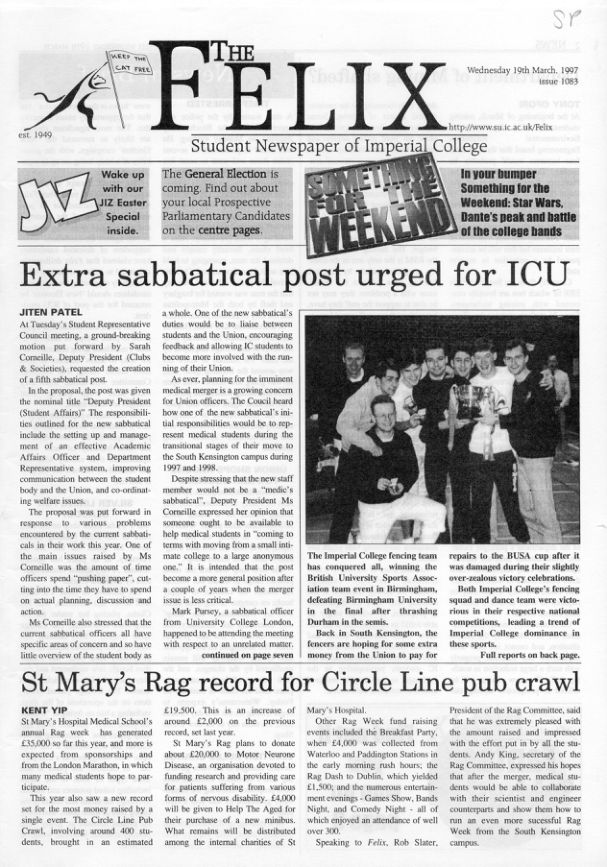Political Feature: The Rt Hon Peter Brooke, CH PC MP
I grew up in North London, and apart from evacuation, parts of education, the army and abroad I’ve been a Londoner all my life. I was a Councillor in North London, and then I became a Member of Parliament again.
You talked about your background in politics, you were a councillor in London before you became an MP?
I was councillor in the Highgate ward of Camden, my father had been a Member of Parliament for Hampstead. I am a sixth generation Member of Parliament, I don’t mean in a straight line, but in each generation for the last two centuries there has been a member of my family in the House of Commons, and the very first was the Member of Parliament of Armagh, that’s in County Armagh.
For security reasons the former Secretary of State for Northern Ireland declined to say whether he currently lives in the constituency.
Do you regard the Dearing Commission as an attempt to take third level education off the political agenda until after the General Election?
I did think that, when they announced it, the fact that Blunkett immediately welcomed it, was a clear indication that both sides were kicking it into touch. I don’t actually think that was a totally bad thing because it wasn’t taking it off the agenda, it was just simply saying that we’ve reached the point where we do actually need to take a look at it. I have got a lot of time for Dearing and I think Dearing is very good news.
What about the future do you see it as a
graduate tax?
I should have thought we would go the way of graduate tax, and I think that there will be an element of fees being paid by students, tuition fees being paid by students.
You say you think that a graduate tax is probably the way we’re going, you’re not terribly worried by this?
Every time this government has changed the arrangements, of all the changes that have made since 1983, there have been statements that this is the end of civilisation as we know it, and civilisation doesn’t seem to have come to an end. The number of people coming into higher education had continued to expand dramatically and more than half the student body are now mature students, I think it is a remarkable success story.
So basically you accept that it’s going to happen and that it’s not a big disaster?
I think that it’s going to happen, I can’t predict the precise manner in which it’s going to happen, at the moment only one in thirteen of the people who are repaying student loans are defaulting on them, so it looks as though that was working reasonably well.
You talked about the AUT before, I’m sure you saw the press coverage and everything they got for their recent strikes, did you particularly oppose those strikes?
I didn’t actually see them, so I can’t actually make any comment on them, I hadn’t actually realised they had been on strike. I am actually in favour of higher pay for academics, I think you run the risk if you don’t actually make it an attractive profession, you run the risk of them going to other parts of the world if you make the rate of return less than satisfactory.
Why should the Science and Technology Minister not be a Cabinet position?
There is a limit to how many cabinet ministers you can have, there is actually a statutory limit, you can’t more than a certain number of ministers. At the moment it isn’t even done at Minister of State level, it’s done at a Parliamentary Secretary level. It so happens that the man who’s doing it at the moment is extremely good, he’s actually very well qualified for doing it. We had a shared responsibility when Mr Waldegrave was doing it, where he was both doing science and doing the civil service, and all those aspects of the public sector. I can’t remember what took William out of it.
Do you see science and technology as important enough to warrant a cabinet position?
I don’t think that it’s a big enough job for it to be the only job that somebody did, therefore I had no difficulty at all with William Waldegrave’s contribution and I gather it was regarded as extremely effective within the science community.
So is that an acceptance that it is important enough?
In my view you would have to have a strong reason for not giving to cabinet level responsibility.
I know him slightly because he was of course at No. 10. I was in and out of No. 10, and of course I saw him then, but I don’t him well. He was the economic adviser.
Presumably you would have some respect for him then?
Of course I do, of course you would have respect for him.
Do you expect him to gain very many votes?
Well he will gain a number of votes, a number of votes from people who feel very strongly. A number of people have very kindly written to me and told me that they’re going to vote for him. Nice thing about being a Member of Parliament, they’re people whom I have had dealings with in the past on constituency matters and they’ve written, in a sense almost apologising, and I’ve written back and we’ve had a good discussion. So there are some people who do it because they feel very strongly about it, and there will be other people who want to do it because they want to exercise a protest vote of one sort or another





